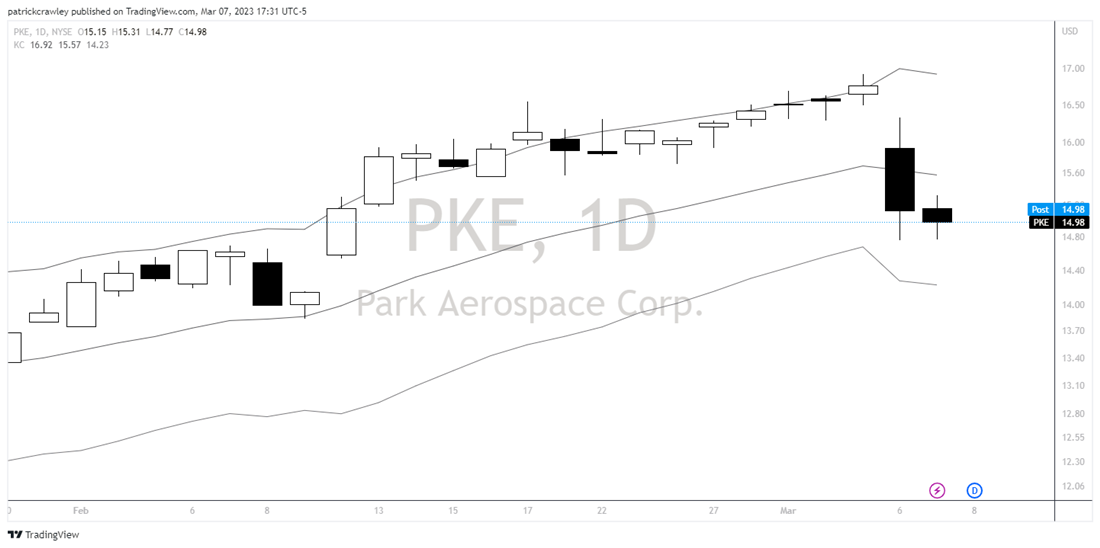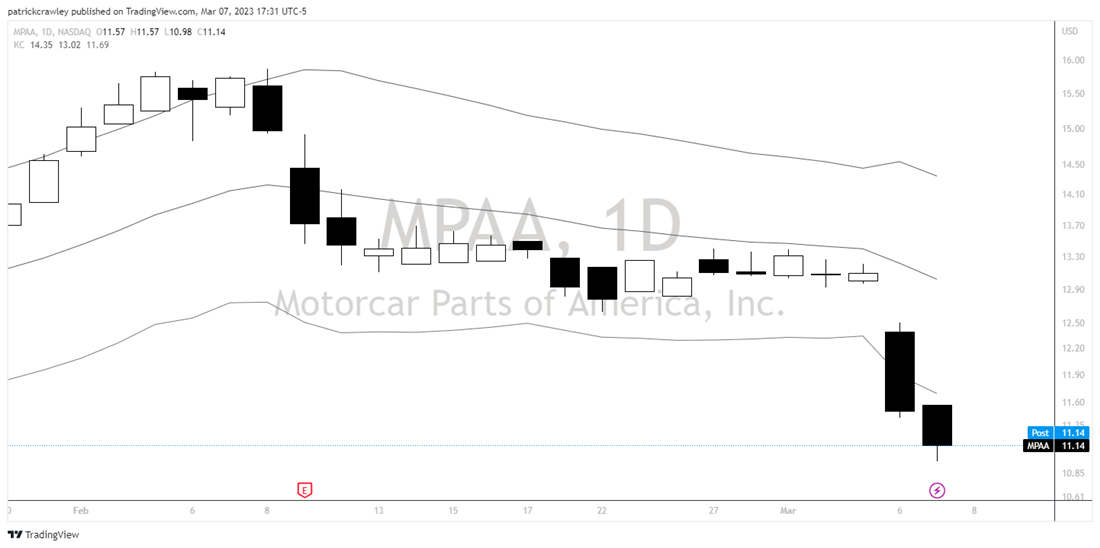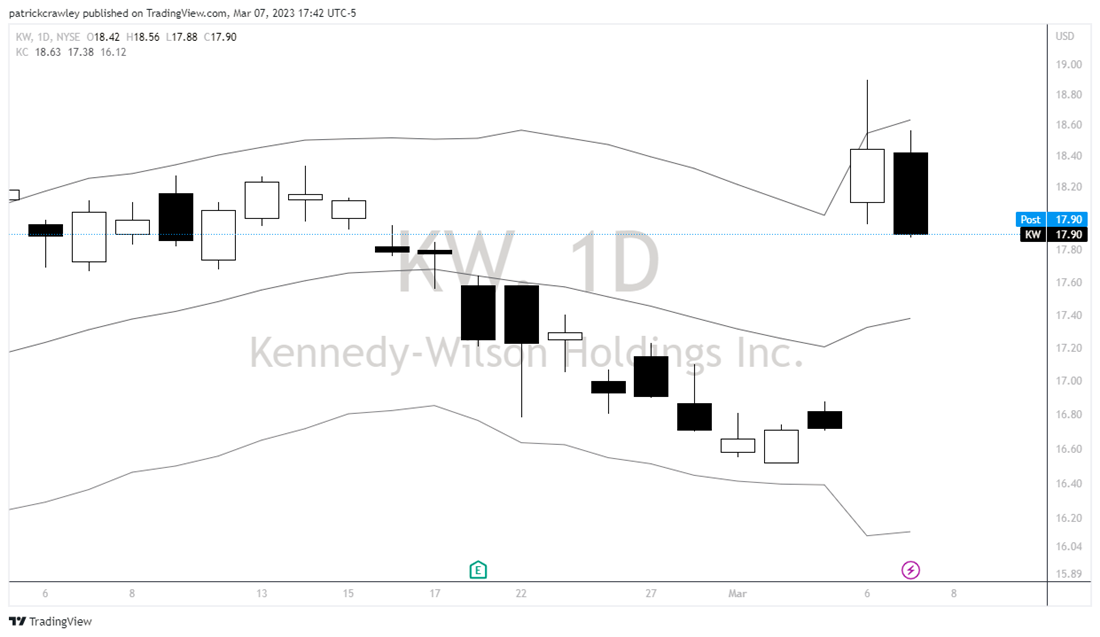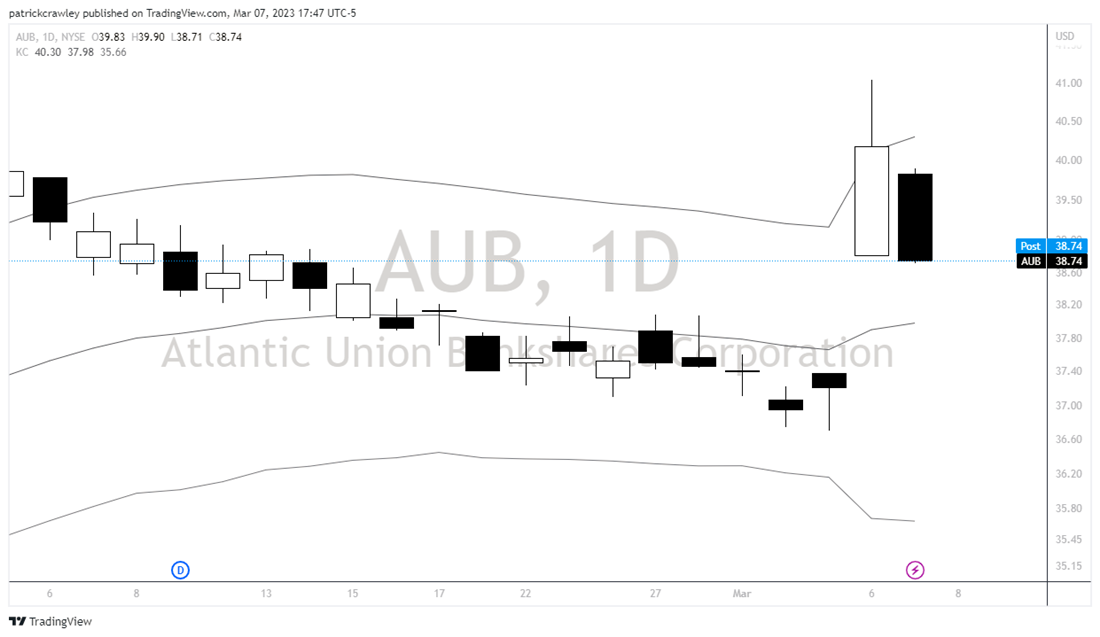
Key Points
- S&P announced the removal and addition of several stocks from its small and mid-cap indexes.
- For illiquid small-caps, the impact of removal can be striking.
- How the growth of passive investing makes this impact more dramatic.
- 5 stocks we like better than Atlantic Union Bankshares
Several stocks plummeted or soared yesterday on news that S&P was removing or adding them to its S&P Mid-Cap 400 and S&P Small-Cap 600 indexes.
Take Park Aerospace NYSE: PKE, which dropped 10% upon news that it’d be removed from the S&P Small-Cap 600 index. Or Kennedy-Wilson NYSE: KW, which rose 10% on news that it’d be added to the small-cap index.
And as a result, index funds like ETFs and mutual funds replicating these indexes will have to sell the deleted stocks and buy the added stocks. For instance, the large size of the iShares Core S&P Small-Cap ETF NYSE: IJR, which manages $70 billion, means its rebalancing will significantly affect prices.
Although the index changes won't be in effect until March 20, once the news hit, traders began buying and selling the affected stocks in anticipation of the March 20 effective date.
What Happened?
S&P has precise eligibility criteria for its indexes. Typically these are exact thresholds on market cap, profitability, and liquidity. Stocks fall in and out of compliance with these guidelines, so S&P makes quarterly changes to the indexes.
Consequently, ETFs and mutual funds that use indexes as a benchmark must rebalance their portfolios when the respective indexes change. And because passive index products have become such a dominant force in today's stock market, index rebalancing can dramatically affect the stocks affected.
Which Stocks Were Affected?
Park Aerospace NYSE: PKE, a Long Island-based aircraft parts producer, is one of the most dramatic examples of how index membership can make or break a stock. The stock dropped 10% on news that it’d be dropped from the S&P Small-Cap 600 index.

Motorcar Parts of America NASDAQ: MPAA, an auto parts maker, will also be deleted from the S&P Small-Cap 600 and dropped 14% on the news.

But companies like Kennedy-Wilson NYSE: KW benefitted as new additions to indexes. The stock rose 10% on news that it’d be added to the S&P 500 Small-Cap 600.

Regional bank Atlantic Union Bankshares NASDAQ: AUB is also a new addition to the S&P Small-Cap 600, which saw it rise roughly 8%.

While these stocks are excellent illustrations of the effects of index rebalancing, dozens of other stocks are affected. Thankfully, S&P communicates clearly which stocks they're adding and removing. Check out the notice here.
Why Do Index Changes Create Volatility?
In a nutshell, indexes drive buying and selling because they serve as the benchmark for so many large investment funds. When these funds rebalance their portfolios to reflect new changes in the index (like selling a stock that got removed from the index), their trading has significant pressure on the stock price.
Let's look at Park Aerospace NYSE: PKE again. The stock has a $310 million market cap and generally trades between 50,000 and 100,00 shares daily. It's a relatively inactive stock.
The iShares Core S&P Small-Cap ETF, the largest S&P 600 ETF, owns about 1.5 million shares of Park Aerospace, which alone is 10 days of the entire stock’s 20-day average trading volume.
And the kicker here is that ETF managers typically rebalance much quicker than your standard active fund manager. Their goal is to track the underlying ETF, and the quicker they rebalance, the more accurate their tracking is. And as a result, the buying and selling pressure can be immense.
But if you read S&P’s press release, you'll notice that these effects don't occur until March 20. So what gives? It's traders discounting the future selling.
The Rise of Passive Investing
The remarkable rise of passive investing to the detriment of active fund managers is one of the most significant trends in finance over the last decade.
Each year, more and more capital is invested agnostically into index funds. An investment in a passive investment fund like an S&P 500 ETF has no regard for the valuation, business quality, or management teams of any individual stock in the index. As this effect gets more pronounced, it raises questions about how a market dominated by passive momentum-style investing can discern between good and bad companies.
Mike Green, formerly of volatility hedge fund Logica Capital, got to the heart of the phenomenon in a 2020 paper when he said, “these are not passive investors - they are mindless systematic active investors with zero interest in the fundamentals of the securities they purchase.”
Bottom Line
Investors might recall the wild rise in Tesla NASDAQ: TSLA stock in late 2020 when it was set to join the S&P 500 index. While Tesla was a theatrical case, the game of index deletions and additions constantly occurs in the small and mid-cap world.
Because small and mid-caps tend to be illiquid, a deletion or addition from an index can have striking ramifications. As the investing world continues to shift to passive investing, this is an underappreciated factor to small-cap stock ownership.
Before you consider Atlantic Union Bankshares, you'll want to hear this.
MarketBeat keeps track of Wall Street's top-rated and best performing research analysts and the stocks they recommend to their clients on a daily basis. MarketBeat has identified the five stocks that top analysts are quietly whispering to their clients to buy now before the broader market catches on... and Atlantic Union Bankshares wasn't on the list.
While Atlantic Union Bankshares currently has a "Buy" rating among analysts, top-rated analysts believe these five stocks are better buys.
View The Five Stocks Here
Wondering when you'll finally be able to invest in SpaceX, StarLink, or The Boring Company? Click the link below to learn when Elon Musk will let these companies finally IPO.
Get This Free Report